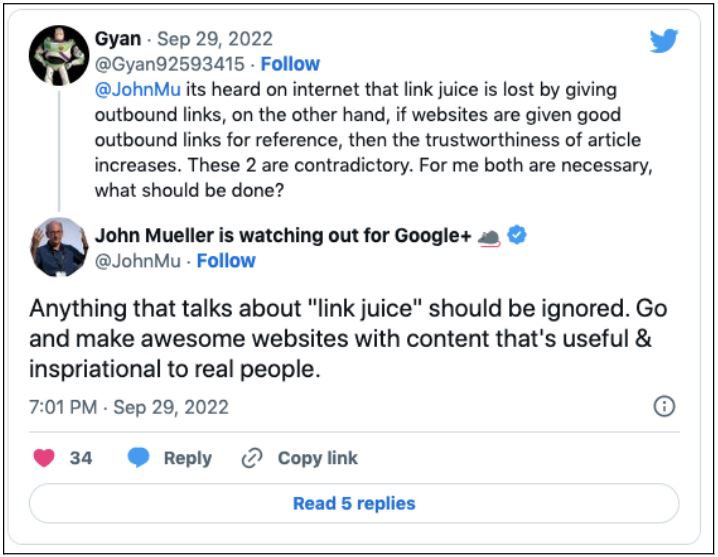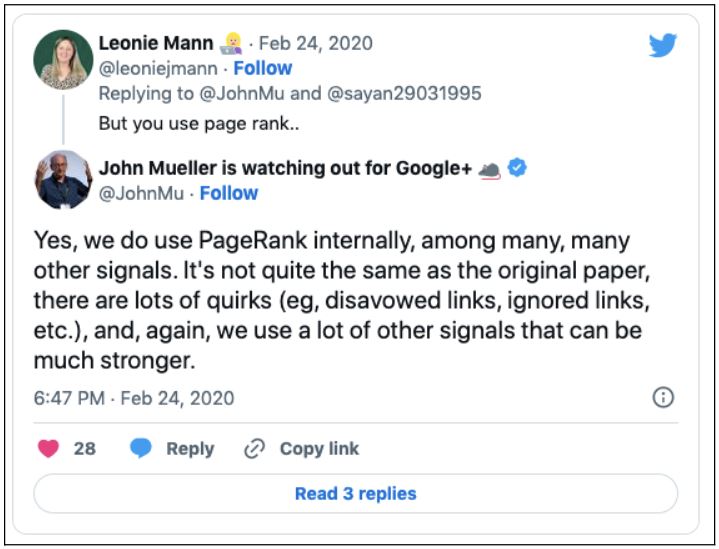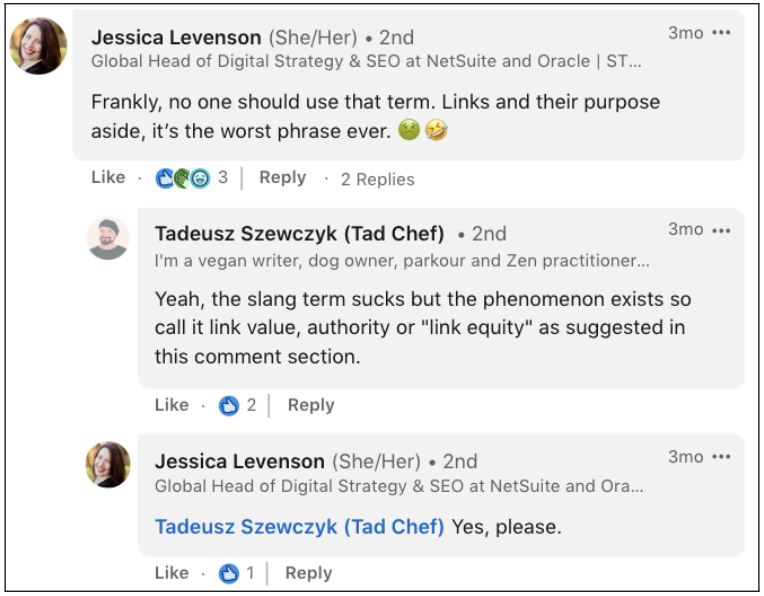Is Link Juice Still Relevant in 2023?
The world of search engine optimization is full of debate. Most of it is healthy.
People disagree on topics like how much effort you should pour into keyword optimization, the importance of adapting your strategy to every Google update, and whether AI-generated content will spell the end for human copywriters.
Another contentious issue is the concept of “link juice.”
Here, we’ll look at the history of link juice, see what different SEO experts say about it, and address whether you should still factor it into your SEO and link-building outreach efforts today.
So let’s begin with a quick refresher.
What is Link Juice?
Link juice refers to the idea that pages transmit some ranking value when linking to other pages.
The idea stems from the fact that Google takes into account a page’s backlink profile when determining its credibility, topical relevance, and rank-worthiness. Google views each backlink as a kind of endorsement of that page and, as a rule, assigns greater weight to endorsements from reputable websites (using Google’s PageRank scoring formula).
So, in theory, a page with multiple backlinks from authoritative sites will receive more link juice than one without. And as a result, it will have a better chance of ranking prominently in Google’s SERPs.
A Brief History of Link Juice
In the early days of Google, rankings were primarily determined by the PageRank metric we just mentioned.
Developed in 1997, PageRank measured the relative value of a page by checking the quantity and quality of its backlinks. The more links a page received, the more link juice it would benefit from.
When it was first introduced, the PageRank formula was much more effective than alternative algorithms at delivering relevant search results. This enabled Google to rise to search engine dominance by the early 2000s.
However, people could game the PageRank system pretty easily. Spammy link-builders would artificially elevate their rankings by pointing countless unnatural links to their domains via link farms. Moreover, a tactic called “PageRank sculpting” allowed webmasters to siphon extra link juice to specific pages by selectively using the “NoFollow” attribute.
Here’s how it worked: Suppose a page had five outgoing links, but four were tagged as no-follow. In that case, the accumulated link juice those four links would have received would instead be directed into the one remaining do-follow link.
Google updated the NoFollow attribute in 2009 so that PageRank sculpting was no longer possible. It also continued to refine its algorithm in other ways, incorporating additional ranking signals and relying less heavily on PageRank.
Then, in 2012, Google rolled out the Penguin algorithm update. Also called the “webspam update,” these changes were designed as a major countermeasure against black-hat link-building practices, keyword stuffing, and cloaking.
As Google downgraded the value of shady links, sites that had once received link juice from low-quality backlinks now saw their rankings and organic traffic diminish. From then on, webmasters would have to build clean, authentic backlink profiles to reap the benefits of link juice.
What Do SEO Pros Think about Link Juice Today?
We know Google’s algorithm now uses hundreds of signals to determine how pages should rank. With that in mind, how much stock do SEO experts put into the idea of link juice today?
First, Google itself plays down the value of link-building in most public pronouncements. Instead, it emphasizes the importance of creating high-quality content that gives users what they want.
And when it comes to link juice specifically, Google is positively dismissive. Here’s a recent tweet from Google’s John Mueller:

But make no mistake, PageRank (and therefore link juice) is still a core component of Google’s algorithm. As recently as 2020, Mueller confirmed that PageRank is still alive and well:

Moreover, Google’s very own webmaster guidelines state that: “you can confer some of your site’s reputation to another site when your site links to it.”
To us, that sounds like link juice in all but name.
In fact, most SEO experts do still subscribe to the link juice idea in one form or another. But most prefer to use terms like “link equity” or “link authority” for aesthetic reasons. This recent interaction in a LinkedIn discussion about link juice demonstrates the point pretty well:

The Verdict: Should You Still Care About Link Juice?
The short answer is yes.
Sure, some people may wince at the oversimplified link juice metaphor, but the underlying concept refers to something real. Google really does factor in the authority of linking pages when deciding how to rank linked-to pages. And for this reason, link juice remains as relevant as ever to link-builders.
That said, it’s important not to assume that page authority is the only thing that influences link juice. Here are some other factors that may come into play:
- Anchor text: As Google mentions in its SEO starter guide, descriptive anchor text makes it easier for the search engine to understand what the linked-to page is about.
- Relevance: Relevant links carry more weight. So a link from a shoe-review website to your sneaker brand homepage will pack a bigger punch than one from a cooking website.
- Crawlability: Google can only index and rank pages it can crawl. A link from an uncrawlable page won’t pass any link juice.
- Location: Google’s Reasonable Surfer patent implies that links appearing higher in the body copy may carry more weight than those lower down the page.
- Quantity: The amount of link juice that flows from a page depends on how many outbound links are on that page. In principle, a page with five links will pass twice as much link juice through each link than a page with ten links.
- HTTPS: In 2014, Google confirmed that HTTPS is a ranking signal. So all else being equal, HTTPS sites will rank better than HTTP sites.
Final Thoughts
Despite many changes and additions to Google’s algorithm over the years, link juice remains an important concept in the world of SEO and link-building.
While the flow of link juice is much harder to manipulate today than in the past, it is still one of the core signals Google uses to rank pages in its search results. Earning links from relevant, well-known sites can definitely boost your ranking potential.
That said, directly measuring link juice is difficult. Several factors can influence link value – especially the relevance and authority of the referring page.
The good news is plenty of link building tools can help you build a healthier backlink profile, including SEMrush, Ahrefs, and Majestic.
Pitchbox provides seamless SEO integrations with each of these tools (and more). Our user-friendly interface gives you instant access to key metrics like authority score, domain rating, and trust flow so you can easily identify high-quality outreach targets.
